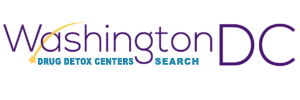Relapse Prevention Programs in Washington D.C.
Treatment can bring an end to substance abuse, but addiction remains a lifelong concern. Like other chronic diseases, addiction requires ongoing management in order to remain abstinent from drug and alcohol use. Relapse prevention programs help to provide continual support for those who have finished treatment and can play an important role in helping those in recovery remain clean and sober for the long term.
Why Relapse Prevention Programs Matter
The National Institute on Drug Abuse reports that even after finishing an effective treatment program, roughly 40 to 60 percent of those addicted to drugs and alcohol will relapse. As their names suggest, relapse prevention programs are intended to minimize the risk of an individual resuming the use of drugs and alcohol.
Relapse prevention programs are effective because they help those who have completed treatment.
- Identify and then avoid and confront situations that could jeopardize their sobriety
- Recognize when they are in danger of relapse by spotting warning signs
- Get help for relapse quickly through an action plan that is written down and simple to follow
- Develop the ability to work through negative feelings without resorting to the use of drugs and alcohol
- Notice when their thoughts and attitudes become self-destructive or start to undermine their sobriety and work to correct them
- Make changes to their everyday lives to foster a lifestyle that is more conducive to sobriety
Understanding Relapse
While many people think of relapse as the act of using drugs or drinking after a period of abstinence, relapse actually begins before a drug is used or a single sip of alcohol is taken. There are three stages to relapse:
Stage 1: Emotional Relapse
Emotional relapse is sparked by a trigger, such as depression, stress or anger. The negative emotion takes over if it is not dealt with in a healthy manner.
Stage 2: Mental Relapse
Mental relapse is when a drug addict or alcoholic starts to think about using. It often involves fantasizing about substance abuse or making a plan to get drugs or alcohol.
Stage 3: Physical Relapse
Physical relapse is when drugs or alcohol are actually used.
Through relapse prevention programs like therapies, support groups and other programs and events, individuals in recovery are often able to catch relapse in its early stages and get help before they begin to drink and use drugs again. When full relapses do occur, the programs make getting back into treatment simpler.
Help for Substance Abuse in Washington, D.C.
At drugdetoxcenterswashingtondc.com, we help people who are addicted to drugs and alcohol deal with the disease of addiction through holistic approaches that emphasize physical, emotional, mental, and spiritual well-being. Relapse prevention programs are included in the aftercare that we recommend for those who complete addiction rehab treatment programs to help ensure successful transitions to everyday living. Drug Detox Centers Washington D.C. remains available to assist those in recovery when relapse warning signs emerge or when full relapses occur.
To find out more about recovery programs in Washington, D.C., please contact Drug Detox Centers Washington D.C. at (202) 400-3795.
